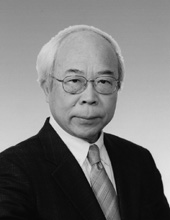|
|
|
1. INTRODUCTION | |
|
Human physiology, which investigates the mechanisms of human body function, provides us with scientific guidelines for healthy living and scientific knowledge that forms the basis for elucidating the mechanisms of disease pathogenesis.The National Institute for Physiological Sciences (NIPS) is an inter-university research institute for research and education on human physiology. The human brain is the key organ which makes a human being a 'roseau pensant' (a thinking reed). Also, the brain regulates and controls other organs and tissues in the human body through interactions with them. Therefore, the main subject of current investigations at the NIPS is the brain and nervous system. The NIPS can be described succinctly as an institute where investigations on human body and brain functions are carried out through joint studies with domestic and foreign scientists, and where education and training for graduate students and young scientists are provided. The first mission of NIPS is to conduct cutting-edge research in the physiological sciences at many levels--from the molecule to the system or whole organism--and to elucidate the mechanisms of living body function by integrating the research results from the different levels. The recent progress in the life sciences is truly remarkable. The NIPS has always played a leading role in advancing the physiological sciences both in Japan and abroad. The second mission of NIPS, as one of the inter-university research institutes belonging to the National Institutes of Natural Sciences (NINS), is to conduct joint studies with researchers from domestic or foreign universities and research institutes. To do this, it provides specialized equipment, large-scale equipment, research facilities, databases, research techniques and congress facilities to the researchers. Typically, a large number of domestic and foreign scientists are present at the NIPS to perform joint studies, to utilize our equipment and facilities or to attend research meetings and international symposia. The third mission of NIPS is to educate graduate students and to train young scientists in the Graduate University of Advanced Studies and from many other universities. The NIPS is responsible for directing the Ph.D. course of study in physiological sciences in the Graduate University of Advanced Studies. The NIPS also contributes to the training or education of graduate students and young scientists from many universities and research institutes by providing various training and teaching courses. In addition to these three missions, the NIPS intends to extend its effort to disseminate scientific information and to publicize its work. Communication not only with scientists but also with the general public will be strengthened by enriching the NIPS website (http://www.nips.ac.jp/), participating in partnerships for physiological education in elementary and high schools, and giving lectures open to the public. The NIPS, founded in 1977, reaches a new milestone at its 30th anniversary. We will strive with all our effort to advance our missions. Your understanding, and continued support of our activities is appreciated very much. OKADA, Yasunobu, M.D., Ph.D., Director-General
|
|
|
|
| Copyright(C) 2007 NIPS (National Institute for Physiological Sciences) | |
